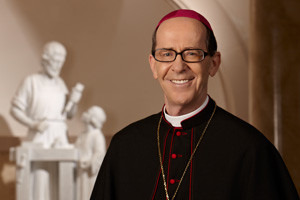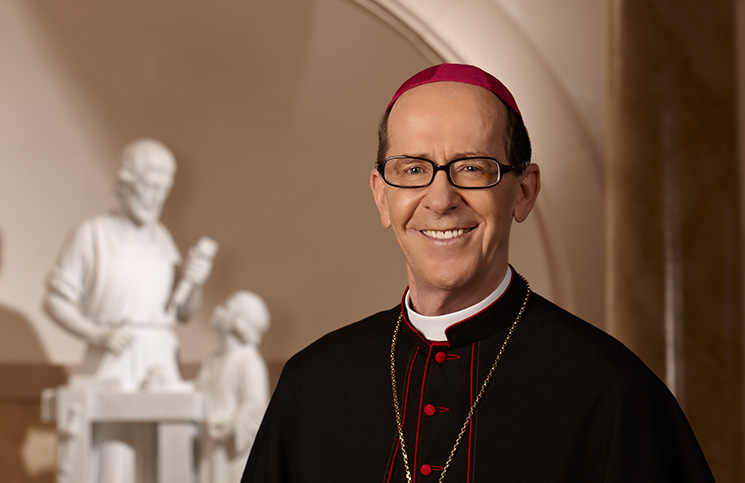This column, which originally appeared in the May 20, 2004 issue of The Catholic Sun, is the second in a series of three.
A few weeks ago, I sent a letter to some priests of the Diocese of Phoenix, asking them to withdraw their support from a public statement entitled “No Longer Silent Phoenix Declaration.” The letter was intended to be personal and confidential because I had hoped to engage these brother priests in a person-to-person conversation about the pastoral care of homosexual persons, without the distraction of publicity. To my disappointment, news of the letter was leaked to the press. While not making my fraternal dialogue with these priests impossible, the leak has made it more difficult. Nonetheless, I have been able to engage the majority in substantial conversations about this important pastoral matter. And I am grateful that most, in accordance with my request, have withdrawn their support from the declaration. I continue to hope and pray that the others will do the same.

Since portions of my letter have become public, I have decided, for the sake of accuracy and fairness to all, to publish it in its entirety in this same issue of The Catholic Sun. I would like also, in this part of my series on the “Blessing of a Chaste Life,” to write about the pastoral care of homosexual persons: what not to do and what to do.
What not to do
- Do not see those with homosexual inclinations as problems but as persons, persons whom Jesus redeemed by His Cross, persons called to holiness, persons with an inviolable dignity and an eternal destiny bestowed on them by God, persons like you and me, persons who have a welcome place in our Church.
- Do not condone homosexual activity or fail to teach clearly that it, along with all sexual activity outside of marriage, is seriously wrong. We should not presume that others know that homosexual behavior is wrong. Our silence about it could reinforce that mistaken notion.
- Do not support any group such as No Longer Silent or Dignity that fails to uphold clearly the teachings of the Bible and the Church on homosexual acts and homosexual persons. We cannot help one another along the path of conversion and union with Christ if we deny the truth.
What to do
- Lend encouragement to groups like Courage that offer support to homosexual persons in their vocation to holiness, and who do this in full conformity with the teachings of the Church.
- Be well informed about the teachings of our Catholic Christian faith on this topic. Read what the Catechism of the Catholic Church says about this topic (#2357-2359). Read the Letter of the Congregation for the Doctrine of the Faith to the Bishops of the Catholic Church on the Pastoral Care of Homosexual Persons. Read good books on this topic such as those by Fr. John Harvey: e.g. “The Homosexual Person” and “Truth about Homosexuality.”
- Should you be aware of persons who have homosexual inclinations, accept them as brothers and sisters in Christ and support them by authentic love and prayer.
- Should persons you know be engaged in homosexual activity, look for an opportunity to invite them back to the faithful practice of a life of abstinence, assure them of the power of God’s mercy to forgive and to bring fresh hope, and pray for their conversion. Christ calls us all to on-going conversion of life; so our prayers for conversion encompass ourselves as well as others.
These are only a few of the do’s and don’ts of a full program of pastoral care of homosexual persons. The books and documents mentioned above can provide a more encompassing program. As I stated in my letter to my brother priests who signed the declaration, our relationship with homosexual persons needs to be that of Christ, one that offers full and fraternal acceptance of each person as made in the image of God and one that is animated by both truth and charity. When carried out with the help of the Holy Spirit, it can help us all to grow to full maturity in Christ.






![[VIDEO] Make Sunday feel like Sunday again](https://www.catholicsun.org/wp-content/uploads/2021/04/2021-YOUTUBE-BISHOP-MESSAGE-THUMBNAIL-ENGLISH-218x150.png)